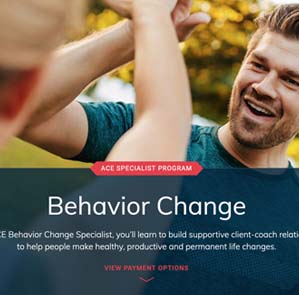
Study: Are Your Clients Telling the Truth About What They Eat?

Food journaling has long been a staple of health coaching, as it helps illuminate what a client is eating and the habits that might impact their dietary goals. However, a food journal is only as helpful as it is accurate, and the approach relies on the client taking good notes, understanding food portions, and accurately recalling what they eat on a given day.
As it turns out, most of us aren’t very good at estimating (or admitting) what we eat. In fact, a new study suggests that people underestimate their total daily intake by about 900 calories, which is the equivalent of three McDonald’s cheeseburgers per day.
Published in the American Journal of Human Biology, the study showed that everyone, regardless of whether they had overweight or obesity, underreported the amount of food they ate by about the same amount. Although the gap in reported meals and actual intake was larger in individuals with obesity, these individuals actually burn more calories than those who are not overweight.
The study included 221 adults who had an average age of 54 and a range of body shapes. Researchers asked them to keep a food diary and then compared their reported intake to their measured intake, which was determined by using radioactive water and testing the urine of participants.
Interestingly, all participants, on average, claimed they consumed about 1,800 calories per day, with individuals without obesity underestimating their intake by about 400 calories. Although the participants with obesity underestimated how much they ate by an average of 1200 calories, they actually burned about 400 calories more per day through activity. Researchers also found that people who were younger and more active also underestimated their total intake, which suggests that those who burn more calories through activity (which includes those with obesity) are more likely to misreport the number of calories they consume.
The researchers note that previous research has suggested that individuals with obesity are more likely to underreport the number of calories they consume. However, this study suggests that this tendency is not limited to that group. “Public health recommendations have historically relied heavily on self-reported energy intake values,” says lead researcher Gavin Sandercock from the School of Sport, Rehabilitation and Exercise Sciences. “Recognizing that the measures of energy intake are incorrect might result in the setting of more realistic targets.” Dr. Sandercock also believes more research needs to be conducted on “dietary risk factors for obesity, such as foods with high energy density, processed foods, high-fat, low-fiber foods and sugary beverages, all of which drive a high energy intake.”
What the Research Means to Health and Exercise Professionals
Keeping a food log can feel like a chore to many clients. Smartphone apps and digital trackers can make it easier, but it still requires the individual to accurately record everything they eat and to understand portion sizes. For this reason, food journaling may not be a long-term solution for many clients and, as this study shows, it’s often not the most accurate approach. Instead, some clients may benefit from adopting an intuitive approach to eating, which involves developing a healthy relationship with food, getting in tune with the cues the body provides and ending the cycle of dieting, failing and dieting again.
A simple question—am I hungry?—lies at the heart of intuitive eating. Samantha Pollack, an Asheville-based holistic health coach, explains intuitive eating as “eating according to responses from the body.” Cravings can be indications that something is out of balance, but that imbalance is often driven by the mind rather than the body. For that reason, a food journal can be extremely valuable for clients learning to get in touch with the reasons behind their eating habits. By putting their mood and thoughts into words each time they eat, clients will often find patterns that provide insight into subconscious habits that are derailing efforts to eat intuitively. Eating when you’re not hungry is the first sign that you’ve lost the connection with your body’s cues.
Obeying these cues requires a high level of body awareness, which is often lacking among clients who struggle with their weight, who tend to beat themselves up over every lapse in judgment. Pollack recommends that clients counter negative self-talk by looking at their body as if it belongs to a friend. “Most people would never talk to a friend the way they think about themselves,” Pollack explains. Many clients with obesity will say something like, “I’m so fat. And now I just blew my diet for the day”—but they would never talk to a friend or loved one that same way. Self-acceptance can often be the first step to body awareness: “I shouldn’t have eaten that, but that’s O.K. Lesson learned. I just have to get back on track right away.” Doesn’t that sound more like the type of advice you’d give a friend?
For clients who might benefit from this approach, consider offering the following 10 principles of intuitive eating:
- Reject the diet mentality
- Honor your hunger
- Make peace with food
- Challenge the food police
- Respect your fullness
- Discover the satisfaction factor
- Honor your feelings without using food
- Respect your body
- Exercise—feel the difference
- Honor your health—gentle nutrition
To simplify the concept of intuitive eating, Pamela M. Nisevich Bede, MS, RD, CSSD, a nutrition consultant with Swim, Bike, Run, Eat!, L.L.C., provides the following list of things that you can teach your clients who are just getting started with intuitive eating to do each time they sit down to eat: Pause, reflect on what they’re about to eat and why, think about whether they’re making wise choices and, once they begin to actually eat, slow down and savor their food.
Intuitive eating is not a starting point for weight loss. Most clients with overweight or who have obesity will need to learn the basics of good nutrition: counting calories, substituting healthier foods, completing food logs and using other entry-level tools that will eventually help them get in better touch with the needs of their bodies. While clients can certainly work toward true intuitive eating, the process is ongoing and life-long. That said, “Slow down and savor your food” is always excellent advice.
Expand Your Knowledge
 |
ACE Behavior Change Specialist ProgramAs an ACE Behavior Change Specialist, you’ll learn to build supportive client–coach relationships to help people make healthy, productive and permanent life changes. |
 |
Precision Nutrition Level 1 – The Essentials of Nutrition and CoachingThis comprehensive nutrition course will provide you with a deep understanding of nutrition and the confidence to coach it so you can get sustainable results for your clients—all in one practical system. You’ll also get the tools to start or grow a successful coaching business, whether full-time or part-time, in-person or online. |
 |
Applying Nutrition Principles – Course BundleAs an exercise professional or health coach, it is important to remain within the scope of your practice when coaching nutrition and better nutrition choices to your clients. The Applying Nutrition Principles course bundle will equip you with information and meaningful behavior change techniques to help you support your clients in healthier food choices and implement into your practice immediately. |

More Articles
- Certified™: August 2022
Shifting Priorities: A More Holistic View of Wellness
Contributor
- Certified™: August 2022




 by
by 

